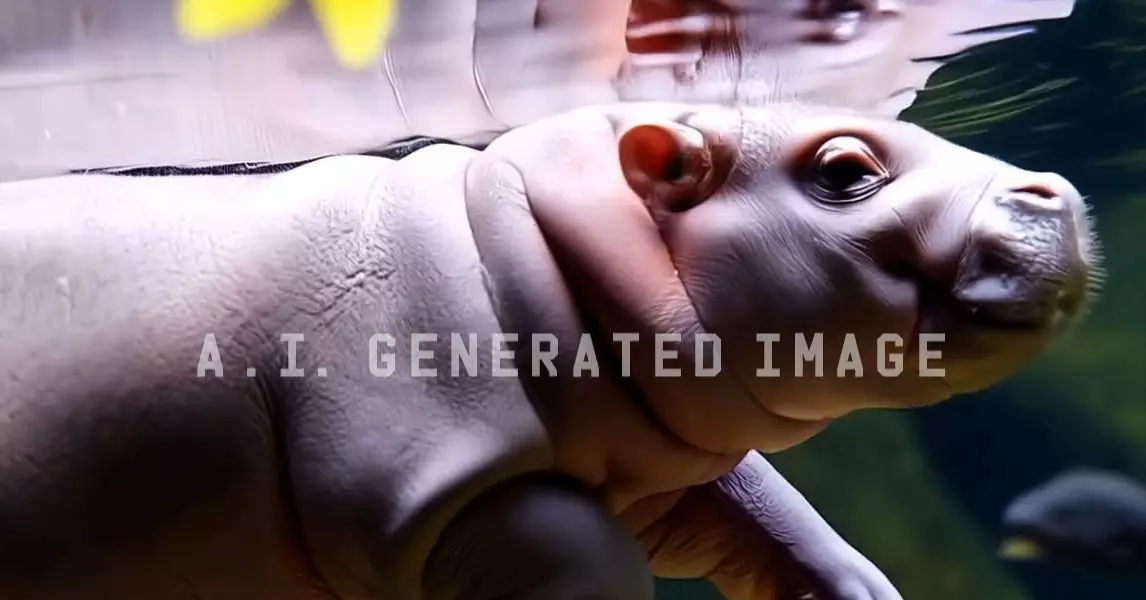Meta, a company synonymous with technological innovation and social media, has unveiled its groundbreaking AI model, Movie Gen. This announcement marks a significant stride in the realm of media generation, where high-quality video and audioclips are created with remarkable realism. The official demonstration showcased various short clips, one of which featured a baby hippo reminiscent of the famed character Moo Deng. Although Movie Gen is not yet available for public use, its introduction comes on the heels of the Meta Connect event, which highlighted advancements in hardware and the latest iteration of Meta’s large language model, Llama 3.2.
What sets Movie Gen apart is its advanced capability to generate not just straightforward video content but to also edit pre-existing footage in nuanced and creative ways. This means that users may have the ability to insert objects into scenes or transform elements within videos seamlessly. For example, in one of the clips presented, a woman donning a VR headset was altered to appear as if she were using steampunk binoculars, showcasing the model’s potential for creative ingenuity. This level of editing represents a significant evolution from traditional methods, pushing the boundaries of what video content can look like.
In addition to its video capabilities, Movie Gen is designed to generate complementary audio tracks that can enhance the visual experience. This feature allows for a more immersive viewing experience, as demonstrated in various clips featuring nature sounds and thematic score layers. For instance, in one sample video, an AI-generated figure stood by a waterfall, where the sound of splashing water intertwined with an uplifting symphony, thus combining visual storytelling with auditory cues.
Meta provided some technical insights into Movie Gen, revealing that the video component consists of an astonishing 30 billion parameters while the audio component encompasses 13 billion parameters. Parameters are critical in AI models since they broadly correlate with a model’s capability to understand and produce complex outputs. For context, Meta’s new video model is notably more efficient than its existing Llama model variant, which comprises 405 billion parameters. Such specifications suggest that Movie Gen could potentially take video quality to new heights, outperforming other contenders in the field.
As interest around this AI tool builds, questions arise regarding how it will be integrated into existing Meta platforms like Facebook, Instagram, and WhatsApp. The potential rollout of Movie Gen seems poised to enhance user engagement with more personalized content creation options. Comparatively, Google has also announced advancements in AI video models, hinting at a competitive landscape that fosters rapid innovation.
Despite the promising capabilities, the ethical and legal implications surrounding the training data of AI models remain contentious. Meta has disclosed that Movie Gen has been trained using a mix of licensed and publicly available datasets. However, the specifics of which datasets were employed are notoriously opaque. Public concerns regarding the sourcing of training data for generative AI tools are prevalent; there’s often a lack of transparency as to what types of content are being utilized to train these models.
As Meta navigates the path of releasing Movie Gen to the public, analysts and tech enthusiasts alike are eagerly awaiting the timeframe for widespread availability. Current estimates remain speculative, with no concrete launch date outlined. The technology, however, holds immense potential in reshaping how video content is created and shared across various platforms.
As more companies invest in the development of AI-generated multimedia content, the question is not only how these advancements will enhance creative expression but also how they will redefine the ethical landscape surrounding content creation. The impending arrival of tools like Movie Gen offers an exciting glimpse into the future of media, where creativity and technology coalesce in extraordinary new ways.

